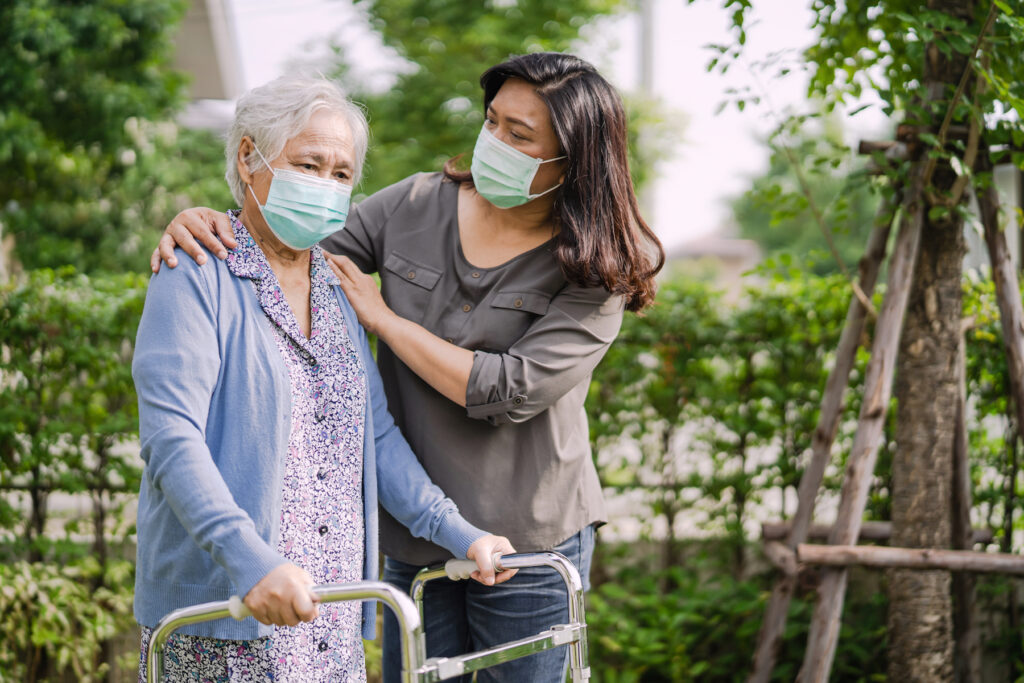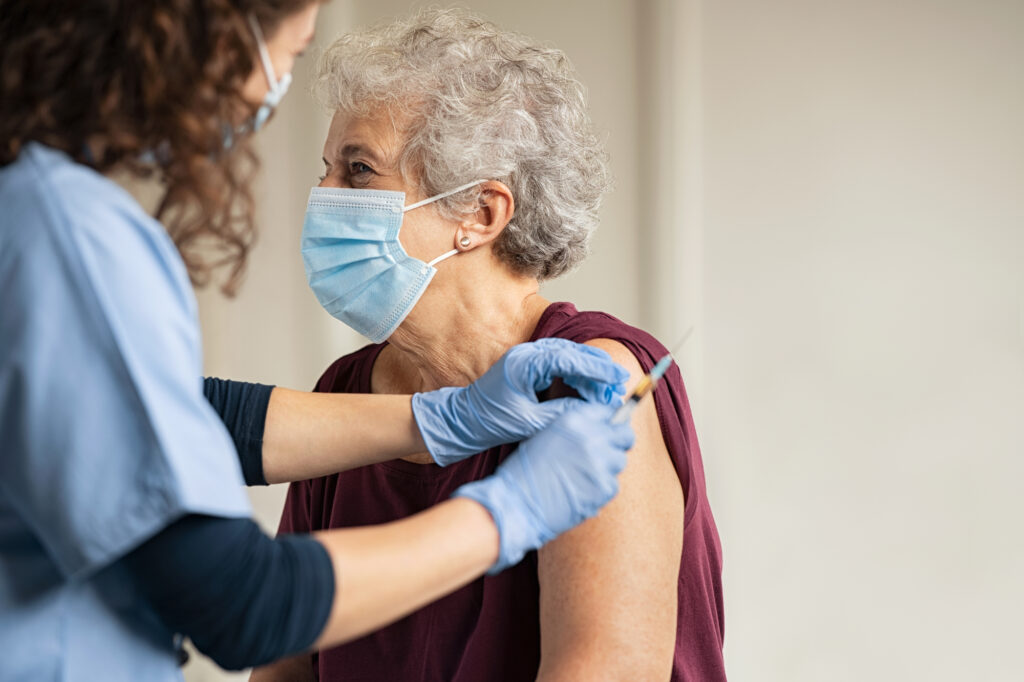As winter closes in, concerns regarding the impact of COVID-19 in aged care facilities have ramped up. But with the general public enjoying far more freedom, are there rules in place for friends and family when visiting aged care?

The Department of Health and Aged Care continues to call for strong and effective infection prevention and control practices for aged care providers and staff.
Their clearest directions can be found in the National Statement of Expectations on COVID-19 Management in Aged Care Settings.
Released in December, the document outlines nationally consistent principles and best practices surrounding COVID-19 in aged care, plus the expected responsibilities of providers if an outbreak occurred.
There are clear expectations that providers and staff remain ready for outbreaks of all levels by ensuring that Infection Prevention and Control (IPC) settings are in place and can be scaled up quickly if needed.
However, there is no government regulation that stipulates visitors or aged care workers must have vaccines, and it’s up to the individual aged care provider if they elect to make vaccination mandatory or not.
What does the Government say?
A spokesperson for the Department of Health and Aged Care said:
“The Government encourages all Australians to stay up to date with their influenza and COVID-19 vaccinations to aid protection against both infection and severe disease, including accessing a 2023 booster dose when eligible.
All of us have a role to play in protecting our own health, the health of our loved ones, and supporting our health systems.
Vaccination continues to be important in managing the risk related to infectious diseases including influenza and COVID-19 in high-risk settings, such as aged care.”

The Australian Technical Advisory Group on Immunisation (ATAGI) recommends that anyone who has not received a COVID-19 vaccine dose or had a confirmed infection in the past six months receives a 2023 booster dose if they’re 65 or older, or aged 18-64 and are at higher risk of complications due to medical comorbidities or have a disability with significant or complex health needs.
For all other adults, ATAGI recommends they consider a 2023 booster dose if their last dose or infection occurred over six months ago.
ATAGI now provides these recommendations regardless of the number of previous doses or boosters someone’s had. Almost 19.6 million people aged 18+ have received their COVID-19 vaccination, which counts as two initial doses while approximately two-thirds of aged care residents are not fully vaccinated.
The Department also recommended all providers continue to monitor and follow advice from the Communicable Diseases Network of Australia and National Guidelines for the Prevention, Control and Public Health Management of Outbreaks of Acute Respiratory Infection in Residential Care Facilities.
Do staff need to be vaccinated?
As per State and Government recommendations, residential aged care providers can enforce their rules regarding vaccinations, masks and testing.
There is no Government mandate for residential aged care employees to be fully vaccinated with a 2023 booster, although they are strongly recommended to be up to date if eligible.
As providers are now enforcing their own rules and policies to comply with Aged Care Quality Standards and Work Health and Safety (WHS), staff may also find themselves having to test more regularly than other people.
Some providers continue to ask staff members to test daily with a rapid antigen test (RAT), while others may not even require workers to wear masks when they’re not around residents.

What about flu vaccines?
Residential aged care providers are required to have a mandatory flu vaccination program in place to comply with the Aged Care Quality Standards.
Providers must take appropriate precautions to prevent and control the spread of the flu, which includes offering free flu vaccinations to staff and volunteers annually.
Your provider should notify you of key dates to book a flu vaccination and they are often provided on-site to help encourage uptake.
What should visitors do about COVID-19?
It’s important that all visitors double-check specific rules with the provider to ensure they’re in a position to look after staff and residents. They may have rules in place that differ from other settings and you should follow them.
To best protect yourself and others you should avoid going to an aged care facility or high-risk setting if you have been exposed to COVID-19 or have any COVID-19 or flu symptoms.
If you have no symptoms but have tested positive, you should still wait until at least seven days have passed. It’s still recommended to wear a mask when entering high-risk settings, and many homes still have mask-wearing rules in place for staff and visitors.
You can find more information on COVID-19 advice for people in residential aged care and visitors on the Department of Health and Aged Care’s website.









